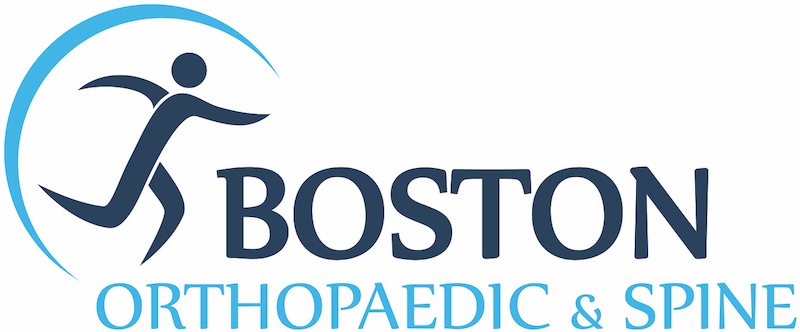The Mystery of the Frozen Shoulder:
What is it and When to Seek Orthopedic Guidance
All blogs reviewed by Physicians for accuracy.
Shoulder pain can be incredibly frustrating, especially when it seems like your joint’s mobility has hit a roadblock. If you’ve ever found yourself struggling to raise your arm or move it comfortably, you might be dealing with a condition known as frozen shoulder. In this blog post, we’ll dive into what frozen shoulder is, how it develops, and most importantly, when it’s time to seek the expertise of an orthopedic surgeon at Boston Orthopaedic and Spine.
Understanding Frozen Shoulder:
Frozen shoulder, medically termed: adhesive capsulitis, is a condition that affects the shoulder joint’s ability to move freely. It typically develops gradually and goes through three distinct phases:
- Freezing Phase: During this phase, you’ll notice a slow onset of pain and stiffness in your shoulder. Activities that require overhead movement or reaching behind your back might become challenging.
- Frozen Phase: In this phase, your pain might stabilize, but the stiffness remains. Your shoulder’s range of motion is significantly limited, making even simple tasks like combing your hair or fastening your bra quite difficult.
- Thawing Phase: Over time, the stiffness starts to improve, and your shoulder’s range of motion gradually returns. This phase can take several months to years.
When to Seek Orthopedic Care:
While frozen shoulder might feel like an inconvenience you can bear, there are certain situations when it’s advisable to consult an orthopedic surgeon:
Persistent Pain: If your shoulder pain is consistent and doesn’t improve with rest or over-the-counter pain medications, it’s time to seek professional guidance.
Significant Stiffness: When your shoulder’s mobility becomes severely restricted, impacting your daily activities and quality of life, an orthopedic evaluation is recommended.
Limited Functionality: If you’re struggling to perform routine tasks due to shoulder stiffness and pain, it’s crucial to have a specialist assess your condition.
Gradual Onset: Frozen shoulder develops slowly over time. If you notice a gradual loss of shoulder motion and increasing discomfort, it’s wise to consult an orthopedic surgeon.
Underlying Conditions: Certain health conditions like diabetes, thyroid disorders, or heart disease can increase the risk of frozen shoulder. If you have these conditions and are experiencing shoulder issues, seeking professional care is advisable.
Why Choose an Orthopedic Surgeon:
Orthopedic surgeons are experts in diagnosing and treating musculoskeletal conditions, including frozen shoulders. They have the experience to differentiate between frozen shoulder and other shoulder-related problems and provide tailored treatment options based on your unique situation.
Treatment Options:
Orthopedic surgeons will assess your condition and recommend the most suitable treatment plan, which might include:
- Physical Therapy: Targeted exercises to improve shoulder mobility and strength.
- Medications: Prescription medications to alleviate pain and inflammation.
- Corticosteroid Injections: Injections to reduce inflammation and ease discomfort.
- Manipulation Under Anesthesia: A procedure performed in an operating room to improve shoulder mobility.
- Surgical Intervention: Rarely, surgery might be considered if conservative treatments don’t yield the desired results.
If you’ve been dealing with persistent shoulder pain and stiffness, frozen shoulder might be the culprit. Don’t let this condition hold you back from living your best life. By seeking guidance from the skilled orthopedic surgeons at Boston Orthopaedic and Spine, you’re taking the first step toward regaining your shoulder’s mobility and reclaiming your everyday activities. Remember, the road to a pain-free and functional shoulder begins with expert care and guidance.
